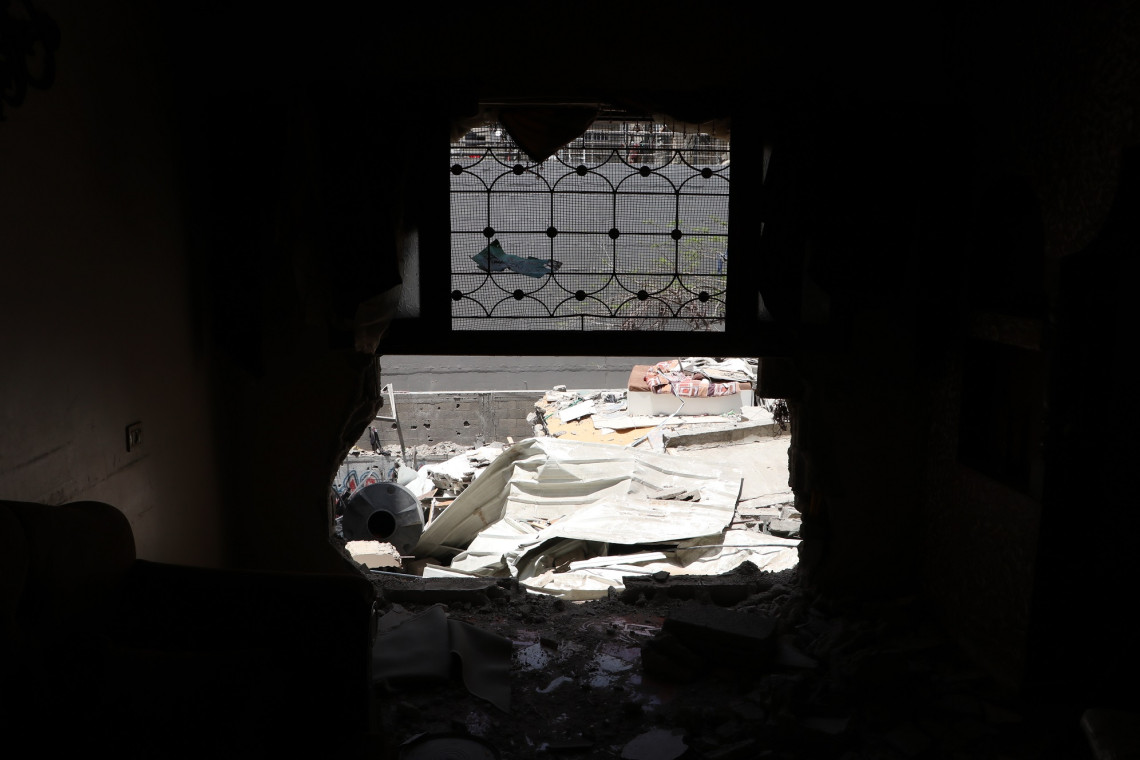
Gaza: with each cycle of violence, hearts grow heavier

The five days of conflict in May 2023 caused death, injury, and destruction for residents of Gaza, many of whom have not yet begun to psychologically, physically or financially heal from their experiences in May 2021 and August 2022.
This is not the only time our house was damaged. We survived many escalations. With almost every round, our house gets damaged. We simply cannot keep surviving this forever
Sixteen years of restrictions on the movement of goods and people exacerbate the situation. Each round of violence is accompanied by closures of crossings in Gaza, reducing not only supplies, but also hope for the future.
Preparing for the worst
Response and resilience are not mere buzzwords; for many in Gaza, they are the lifelines that separate survival from tragedy.
First responders utilize more peaceful times to prepare for the next round of hostilities. They understand all too well the devastation that each escalation brings and therefore participate in training sessions to efficiently respond to the most pressing needs.
Recognizing the critical nature of these preparations, the International Committee of the Red Cross (ICRC) supports these trainings on emergency preparedness and response. Mr. Raafat Jaarour, the Head of the Training and Capacity Building department of the Ministry of Health in Gaza, spoke of the actual impacts of this preparation.
The training played a significant role in speeding up our response in providing life-saving services…During the latest escalation, the paramedics applied what they learned from the ICRC specialists, which helped them save many lives.
As explosions shake the ground
Mohammed lived in a home with his wife and their four young children. His children, three of them in school, are good students with high grades.
When Mohammed and his wife realized the building was shaking and the walls crumbling, he kicked down a door for his family to flee.
When I looked outside, the only thing I could see was flames. I returned to my wife and told her, ‘We are going to die. There is no way we can get out of here. It’s impossible for anyone to reach us.’ I kept looking at my children. I wanted to soak them in for the last time
After the ceasefire
In the days after a ceasefire was announced, the Palestine Red Crescent Society (PRCS) and the ICRC began responding to urgent needs. While communities held their breath to see if the agreement would hold, PRCS and ICRC teams assessed broken homes. Cash assistance and household items were provided to the most vulnerable. This helps them to cover immediate emergency needs and begin the process of rebuilding their lives.
In addition to continuous efforts to improve the provision and increase the resilience of essential water, sanitation, power, and health services, the ICRC extended its support to local service providers with the provision of fuel and technical expertise to ensure areas were cleared of unexploded ordnance. The ICRC and PRCS also organized awareness-raising sessions for children and adults on the dangers of unexploded ordnance around damaged areas.
This routine is a well-worn path that has been walked many times before.
Mohammed was one of those who received this assistance. He is now living with his parents, while his wife and children stay with her parents. With the cash assistance he’s received, he has embarked on a journey of saving, with the goal of securing a home for their future and reuniting with his family.
Ali Yahia is a PRCS volunteer involved in the response. He has seen many families like Mohammed’s. He knows that not only is physical support important for those impacted, but mental health support as well.
We try to focus on providing psychosocial support to the affected families and help children overcome the abnormal time they have endured. But I believe that everyone in Gaza is in deep need for this type of support, even myself!
An uncertain future
Preparing for the future is a tightrope walk between fear and exhaustion. Looking forward is an uncertain game when you are forced to focus on the here and now of rebuilding, yet again.
“I was supposed to have the midterm exams next week. I cannot go to school. I will fail this year. I lost all my books and notes, and now I have no place to study or sleep.” - Rima Nabhn, 13 years old, Gaza Strip.
Despite this unknown, community members will continue to rebuild. There is no other choice.
The ability of people in Gaza to rebound is an unfortunate testament to the harsh reality they live within the face of repeated escalations. Communities are forced to constantly adapt to their circumstances, enduring repeated cycles of violence in the absence of any lasting resolution to this protracted conflict. Beyond the visible humanitarian consequences of these hostilities, the unseen scars run deep and will continue to affect Gaza’s young and struggling population for years to come
